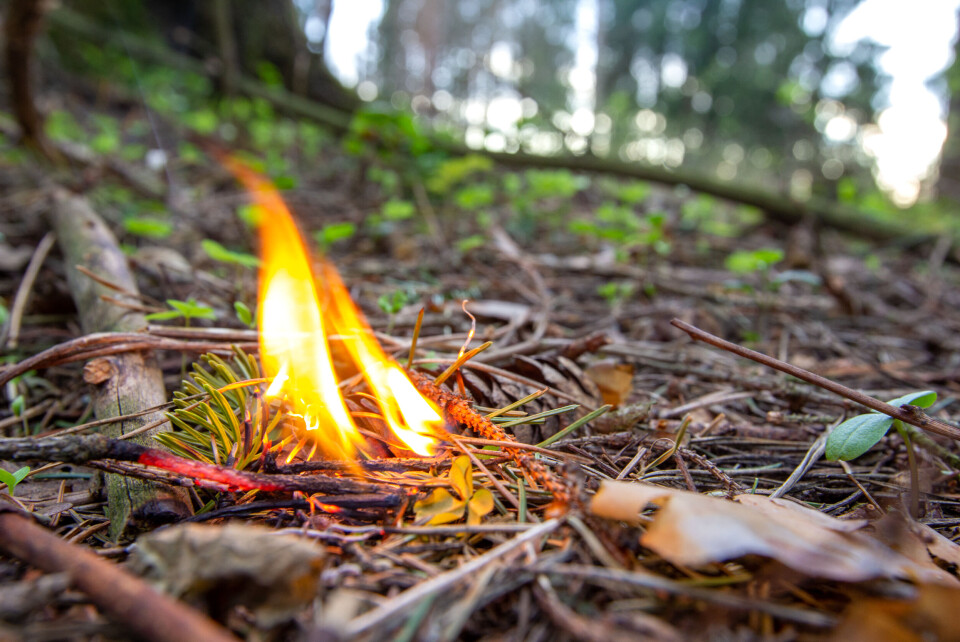-
Pistes closed, confinement orders: Alpine resorts deal with avalanche risk
Increased snowfall this weekend may cause further closures as busy school holiday season continues
-
Former French Interior Minister announces 2027 presidential candidacy
Bruno Retailleau recently asked prefectures to be tough on immigration
-
From Oregon to Brittany: primrose nursery in France celebrates 90th anniversary
Barnhaven Primroses traces its history back to 1930s America
Wildfires: French law may require you to cut back at-risk vegetation
In southern regions of France, residents whose property is within 200m of woodland must prune or clear plants which could enable a fire to spread

Article published May 24, 2022 (edited June 6, 2023 to add clarifications on the rules)
With the risk of wildfires growing as we move into summer, many residents are required by French law to clear and cut back vegetation which could help a blaze to spread.
Legislation on débroussaillage (strimming or cutting back) requires residents to make sure that any plant life which could allow a fire to jump from place to place. This might mean getting rid of long grass, shrubs and bushes, pruning trees or moving inflammable plants away from your house.
#FeuDeForêt #Prévention | Préparez l'été prochain, pensez au débroussaillement de votre terrain :
— Préfet du Var (@Prefet83) March 19, 2022
✅Les infos pratiques 👉 https://t.co/Yz96PggRMc
⛔ Feu interdit si le vent est > à 40 km/h et obligation de le déclarer en mairie 👉 https://t.co/0pfMfa0fdr#Var #Tousvigilants pic.twitter.com/4xqKbdD8yW
This is normally obligatory for people who live in departments which are particularly vulnerable to these fires, and whose property is within 200m of a forest or other woodland.
It is also required around campsites and areas subject to a Plan de prévention des risques naturels (PPRN), under the Obligation légale de débroussaillement (OLD).
Rules on clearing undergrowth and plant life apply in certain areas of Auvergne-Rhône-Alpes, Occitanie, Nouvelle-Aquitaine, Provence-Alpes-Côte d’Azur and Corsica, although not all forests are necessarily included.
You can find specific details on the areas in which residents must make sure that vegetation is cut back through the government information page Service-public.fr.
Your local prefecture website should also contain instructions for affected residents, and your mairie should be able to help if you have any questions.
How do I go about débroussaillage?
In general, when your property (including land, garden, house...) comes within 200m of woodland, you should cut back vegetation in a 50m radius around your home (the exact rules are fixed by the mairie or prefecture, for example the permiter can be more than this in some areas). Along roads or tracks leading to your home, 10m should be cleared on either side of plants or dead leaves which could catch fire.
Residents are advised to use a strimmer to cut back vegetation, and to keep a 5m radius of tree-free land around their property.
For trees situated more than 5m from the house, think about pruning low branches up to a height of 2m, making sure that the tops are not close enough that a fire could jump between them.
The waste created by your strimming and cutting back should be taken to a public rubbish tip, compacted into compost or chopped up into firewood. Burning it outside is forbidden.
If you do not wish to or cannot carry out the clearing yourself, you can hire a professional for the purpose; typing ‘débroussaillage’ and the name of your department into a search engine may help you to find someone.
Under certain conditions, hiring a professional to do the work could make you eligible for a tax credit of up to 50% of the cost of the clearing up to a limit of €3,000 per year per household. Therefore, you could get up to €1,500 back.
What will happen if I do not cut the plants back?
Those living in areas where débroussaillage is required and who ignore the rules risk a fine of €100 from their mairie for each day that they fail to carry out the clearing.
The commune can also impose a fine of €30 for each m² which has not been cut back.
You also risk a criminal fine of up to €15,000 and/or one year in prison if your failure to débroussailler ultimately enables a wildfire to spread.
How else can I reduce the risk of forest fires spreading to my property?
It may also be helpful to plant fire-resistant plants, and to favour a natural lawn over artificial grass.
Surrounding your garden with hedges can also help to break the momentum of any fire that occurs.
It is important to collect up dead leaves and other dried vegetation before the summer season begins, to clear the ground of fuel for the flames.
Related articles
Forest fires risk means some must clear garden vegetation
Homes evacuated: Dry weather leads to multiple wildfires across France
























